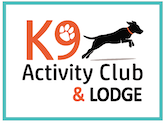
Whether you’re welcoming a bouncy young puppy into your home or have adopted a wise senior rescue, one thing remains essential: a consistent and well-thought-out training plan. Sporadic efforts—training your pup only when it comes to mind—just won’t cut it. Dogs thrive on routine and consistency, and regular training sessions are key to shaping their behavior and strengthening your bond.
Why Consistency is Key
Dogs thrive on routine, and their learning is no exception. Sporadic training—where you only work on behaviors when you remember or when problems arise—is not effective and can confuse your dog. A consistent approach reinforces what they’re learning, helping them to retain information and build good habits.
Training isn’t something that happens in isolated moments; it’s an ongoing process woven into daily life. The more consistent you are, the faster your dog will learn and the better their behavior will become. Incorporate training into everyday scenarios:

- Practice impulse control: Ask your dog to sit before meals, and make them wait calmly before they dig in.
- Work on real-life applications: Have them sit and stay while you open the door or before stepping outside.
Reinforce basic skills: Spend time on fundamental commands like sit, down, and stay to build a solid foundation.
Short, focused sessions are especially effective when introducing new commands. Set aside 15–30 minutes a few times a week to practice in a quiet space with minimal distractions. By breaking training into manageable chunks, you’ll help your dog learn without overwhelming them.
Common Mistakes to Avoid
When training, it’s easy to fall into certain habits that can hinder progress. Avoid these common pitfalls:
- Inconsistency: If some family members enforce rules while others don’t, it can confuse your dog. Make sure everyone is on the same page about training goals and techniques.
- Overloading sessions: Long, repetitive training can overwhelm your dog, leading to frustration. Keep sessions short and positive.
- Ignoring progress: Celebrate small wins! Reward your dog with treats, praise, and affection when they succeed, reinforcing good behavior and motivating them to keep learning.
The Benefits of Training Beyond Commands
Training isn’t just about making your dog “well-behaved.” It’s about improving their quality of life—and yours too. A well-trained dog is less stressed, more confident, and better able to navigate the world around them. Plus, it reduces frustration for owners, making everyday life smoother and more enjoyable. Training also strengthens the bond between you and your dog by establishing clear communication and mutual respect.
Personalized Training for Every Dog
No two dogs are exactly alike, and that’s why a one-size-fits-all approach to training rarely works. Our professional training team is here to guide you through the process with customized programs designed to address your dog’s unique needs. Whether you’re tackling basic obedience, addressing specific behavioral challenges, or just looking to enhance your dog’s skills, our comprehensive programs are built to deliver results.
Take the First Step Today
Training doesn’t just improve your dog’s behavior—it enhances your relationship and builds trust. Let us help you and your furry friend succeed. Sign up for a free assessment to learn more about our techniques and discover a plan that works for you. With expert guidance and a little dedication, you’ll see just how rewarding training can be!
At K9 Activity Club, we provide expert tips, exclusive training resources, and ongoing guidance to help you stay on track with your dog’s progress. Plus, members enjoy unlimited vet consultations, discounts on pet services, and access to a community of dedicated pet parents who are just as committed as you are.

